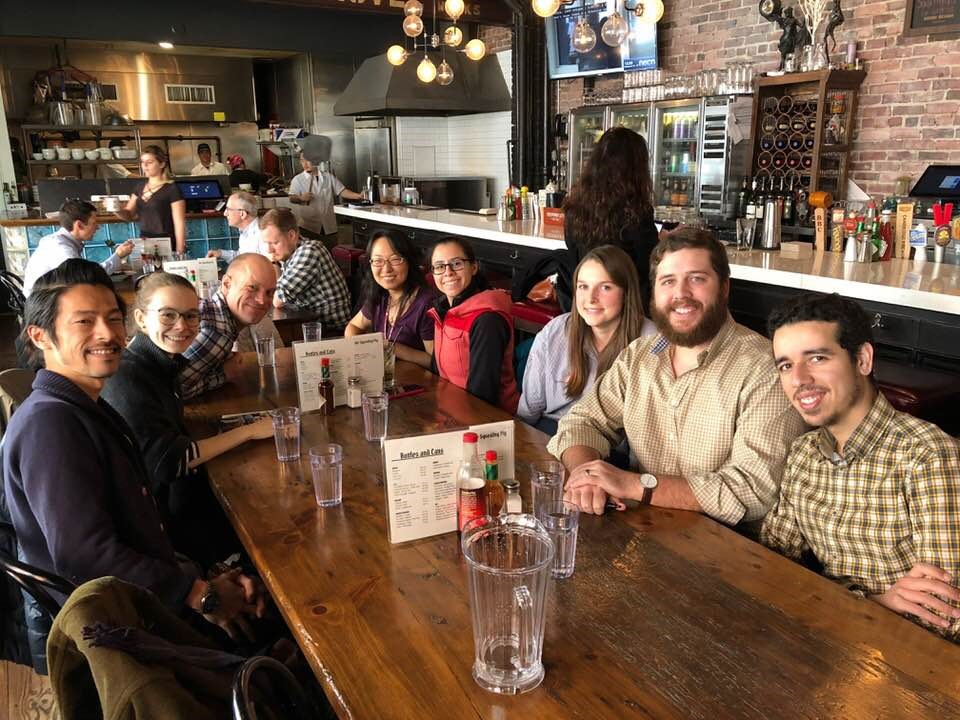Yuki Ishikawa, M.D., Ph.D.
Affiliation in Japan; Riken
(Affiliation in the US; Joslin Diabetes Center 2015-2020)
He has been investigating the ways to “conquer” various autoimmune diseases including RA by genetic modification.
He has recently conducted a CRIPSR-library screening to identify critical gene modification for beta cell protection in autoimmune type I diabetes (T1D), of which pathology had a lot in common with RA. He identified several “hits” by this screening and revealed that one of the hits was indeed indispensable for beta cell protection against T1D autoimmunity both in mice and human.
He is also conducting genetic analysis of autoimmune diseases to identify gene targets critical for their pathology.
The ultimate goal of his research is to modify gene components essential for a given disease by gene-editing technologies, like CRISPR/Cas9 system.
Research Topics; Gene editing, CRISPR/Cas9, Genetic analysis, Autoimmunity
Publication:
- Cai EP*, Ishikawa Y*, Zhang W*, et al. Genome scale in vivo CRISPR screen identifies RNLS as a target for beta cell protection in type 1 diabetes. Nat Metab, 2, pages934–945(2020). *these authors equally contributed.
- Ishikawa Y, Ikari K, Terao C. Response to: ‘Corresponence on ‘Shared epitope defines distinct associations of cigarette smoking with levels of anticitrullinated protein antibody and rheumatoid factor’ by Ishikawa. Ann Rheum Dis 2020.
- Ishikawa Y, Ikari K, Hashimoto M, et al. Shared epitope defines distinct associations of cigarette smoking with levels of anticitrullinated protein antibody and rheumatoid factor. Ann Rheum Dis 2019;78:1480-7.
- Dirice E, Kahraman S, De Jesus DF, El Ouaamari A, Basile G, Baker RL, Yigit B, Piehowski PD, Kim MJ, Dwyer AJ, Ng RWS, Schuster C, Vethe H, Martinov T, Ishikawa Y, Teo AKK, Smith RD, Hu J, Haskins K, Serwold T, Qian WJ, Fife BT, Kissler S, Kulkarni RN. Increased β-cell proliferation before immune cell invasion prevents progression of type 1 diabetes. Nat Metab 2019;1:509-518.
- Ishikawa Y, Hashimoto M, Ito H, et al. Anti-nuclear antibody development is associated with poor treatment response to biological disease-modifying anti-rheumatic drugs in patients with rheumatoid arthritis. Semin Arthritis Rheum 2019.
- Duke-Cohan JS, Ishikawa Y, Yoshizawa A, et al. Regulation of thymocyte trafficking by Tagap, a GAP domain protein linked to human autoimmunity. Sci Signal 2018;11.
- Ishikawa Y, Fujii T, Ishikawa SK, et al. Immunogenicity and Lupus-Like Autoantibody Production Can Be Linked to Each Other along With Type I Interferon Production in Patients with Rheumatoid Arthritis Treated With Infliximab: A Retrospective Study of a Single Center Cohort. PLoS One 2016;11:e0162896.
- Ishikawa Y, Usui T, Shiomi A, Shimizu M, Murakami K, Mimori T. Functional engraftment of human peripheral T and B cells and sustained production of autoantibodies in NOD/LtSzscid/IL-2Rγ(-/-) mice. Eur J Immunol 2014.
- Aoi Shiomi, Takashi Usui, Yuki Ishikawa, Masakazu Shimizu, Kosaku Murakami, Tsuneyo Mimori. GM-CSF but Not IL-17 Is Critical for the Development of Severe Interstitial Lung Disease in SKG Mice. The Journal of Immunology, vol.193, no.2, pp.849-859, 2014.
- Ishikawa Y, Yukawa N, Kawabata D, et al. A case of antisynthetase syndrome in a rheumatoid arthritis patient with anti-PL-12 antibody following treatment with etanercept. Clin Rheumatol 2011;30:429-32.
- Ishikawa Y, Yukawa N, Ohmura K, et al. Etanercept-induced anti-Jo-1-antibody-positive polymyositis in a patient with rheumatoid arthritis: a case report and review of the literature. Clin Rheumatol 2010;29:563-6.
- Ishikawa Y, Terao C. Genetics of systemic sclerosis. J Scleroderma Relat Disord. 2020 Apr (online first).
- Ishikawa Y, Terao C. The Impact of Cigarette Smoking on Risk of Rheumatoid Arthritis: A Narrative Review. Cells2020:475.
- Ishikawa Y, Terao C. Genetic analysis of IgG4-related disease. Mod Rheumatol 2019:1-7.
私は2015年4月から2020年9月までHarvard Medical School のAffiliate の一つであるJoslin Diabetes Center のStephan Kissler Lab に所属していました。
研究室のPI であるDr. Stephan Kissler は,自己免疫疾患や癌におけるT細胞の役割を長く研究してきた経験に加えて,分子生物学的手法にも精通していたことから,5年半近くの所属期間中に基礎免疫学手法に加えてCRISPRなどの最先端の分子生物学的手法を学ぶことができました。
糖尿病領域では言わずと知れたJoslin Diabetes Center は,Harvard Medical SchoolやそのAffiliate の医療機関や研究施設が集まるBoston のLongwood Medical Area の中にあります。糖尿病センターとなるとやはりII型がメインになるのですが,日本に比べてI型糖尿病の罹患率が高いことからI型の研究も多く,他施設においてもRheumatologist がI型の研究や治験を主導しているケースも見られました。遺伝的要因や自己免疫機序においてI型糖尿病はRAと共通しており,疾患に限らず幅広く自己免疫を基礎から追及したかった私にとって,Harvard immunology とT1D immunity を通じて得るものが大きかったと感じています。また,周辺施設には日本をはじめアメリカの外から研究,留学,仕事などで来ている方も多くいて,こうした方との交流を通じて国際色豊かであることが実感できます。
私が住んでいたBoston の隣にあるBrookline City は,自然に恵まれ,閑静な住宅街も多く,教育環境も良いことから家族で来られている方には特に住み心地の良いエリアであると思います。冬は寒くて雪も多いですが,長く厳しい冬を越えた後のすっきりした夏を迎える喜びを,Summer vacation で満喫するのがこちらで暮らす醍醐味の一つで,今でもよく懐かしく思っています。
5年以上をこちらで過ごすのは比較的稀なケースとは思いますが,じっくり腰を据えて研究に従事しながら米国での生活を満喫できたのは,生涯にわたるかけがえのない財産になったと思います。

" class="btn"> 研究者の詳細はこちらから

